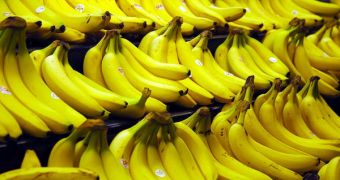The Millennium Seed Bank is, arguably, one of the largest conservation projects in the world, and its goal is to simply preserve as many seeds as possible in its underground vaults. Its operators believe that the world is heading into the wrong direction, and that the authorities' inability to do something about climate change and global warming means that more and more animal and plant species will disappear without a trace. Up until now, the MSB has collected more than 3.5 billion seeds, the BBC News reports, adding that the wild forest banana Musa itinerans is among the latest additions.
The underground vaults that the organization keeps can be found both in the 54 countries that are involved in the project and also at the MSB premises, in Wakehurst Place, West Sussex, the United Kingdom. The ten-percent target was set in 2000, shortly after the UK headquarters of the Millennium Seed Bank opened. Now, the scientists involved in the project, from more than 120 organizations, are proposing that 25 percent of all wild plant species be stored in the freezing vaults – kept at minus 20 degrees Celsius – until 2020.
Musa itinerans, which has been chosen to be a flagship species for the recently reached milestone, is also the 24,200th species to be added to the reserves. The vaults have the ability to preserve a set of seeds for any period of time between a few hundred and a few thousand years, the MSB operators say. The exact period of time depends on the species. All of the specimens are properly dried, cleaned and sorted, and this process ensures that only the best specimens make it to the collection.
“It was chosen because it is representative of what the whole project is all about – it is endemic, endangered and it is an economic species. And of course, everybody loves a banana,” Janet Terry, who is the seed processing manager at the MSB, explains the recent decision of naming the wild banana a milestone species.
“In the next phase, we want to secure another 15 [percent], so by 2020 we will have a quarter of the world's seeds banked in both the country of origin and Wakehurst Place. And a major focus is going to be a considerable expansion in the sustainable use of seeds for human benefit,” the Director of the Royal Botanical Gardens, Professor Stephen Hopper, adds.

 14 DAY TRIAL //
14 DAY TRIAL //